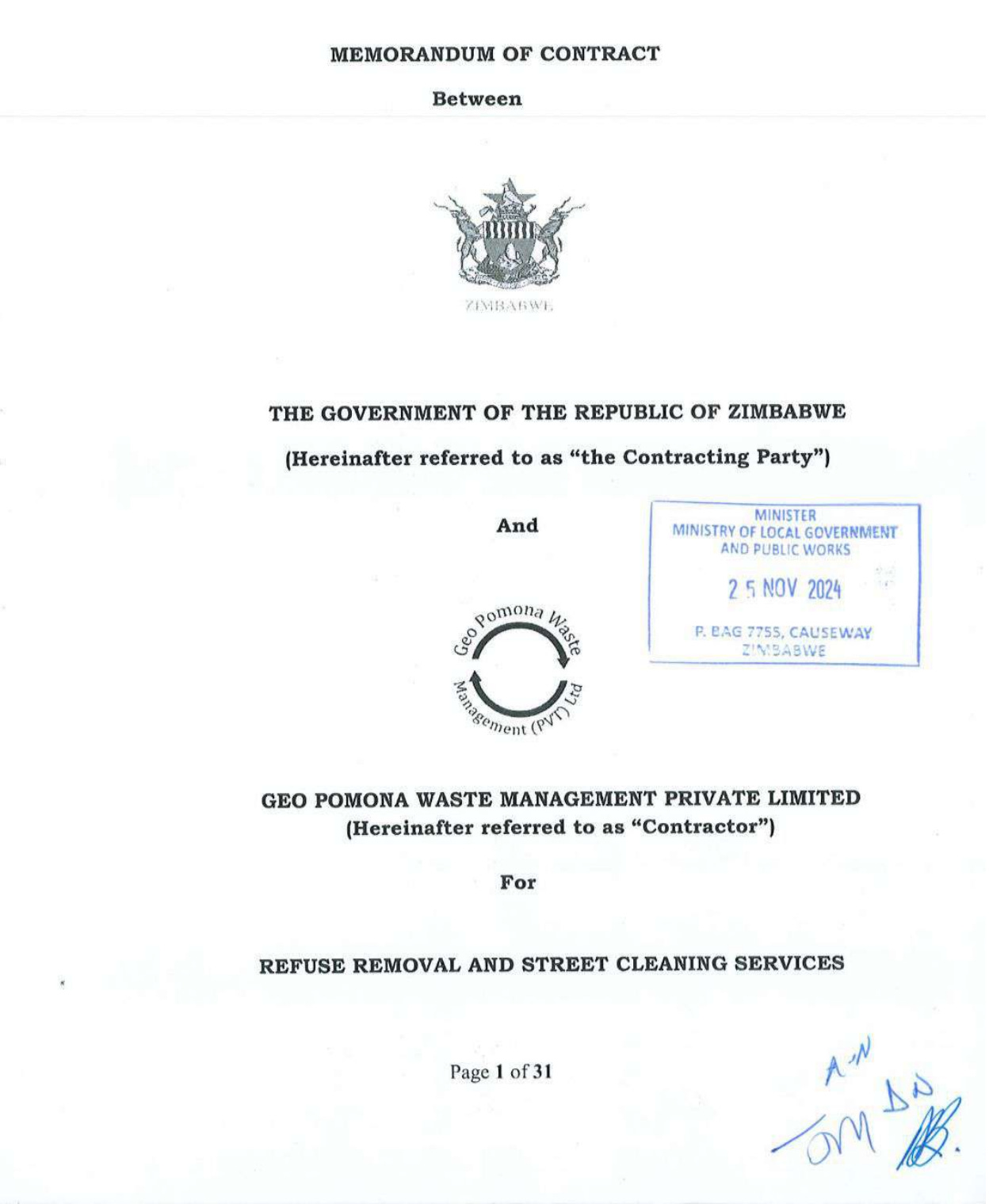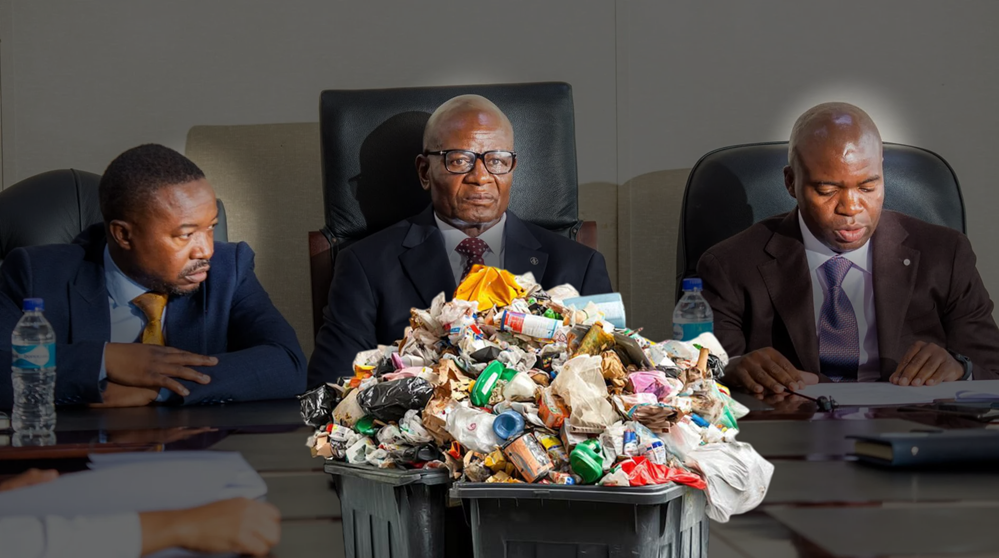Harare’s residents are unknowingly paying the price—literally—for a shadowy waste management contract that is bleeding US$2.7 million from city coffers every month.
A deeply flawed agreement, signed in November 2024 between the City of Harare, the Ministry of Local Government, and Geo Pomona Waste Management, has drawn sharp criticism from experts who point to glaring corruption, secrecy, and entrenched political favoritism.
A leaked 31-page contract reviewed by Dug Up reveals how the arrangement, cloaked in official language, essentially shifts full financial responsibility for city waste management onto ordinary citizens. Though it initially appears that the Ministry of Local Government holds the reins, Clause 23 of the agreement makes it clear: Harare’s city council must bill residents, surrender control of its revenue account, and ensure Geo Pomona is paid—no matter the quality or consistency of service.
The five-year contract guarantees Geo Pomona US$2.7 million every month—translating to a staggering US$162 million over the deal’s lifetime. The company is fronted by Dilesh Nguwaya, a businessman with close personal ties to President Emmerson Mnangagwa and a history of controversy, including past criminal charges in a COVID-19 procurement scandal involving Drax International.

The contract was awarded without a public tender, bypassing standard procurement procedures. More alarmingly, the evidence suggests Geo Pomona lacked the basic equipment to perform the job when operations officially began in February 2025—already behind schedule. Even months later, the company’s own website admitted trucks were still “on the way.”
Geo Pomona’s parent firm, Geogenix BV, is linked to Albanian businessman Mirel Mertiri, who is facing corruption charges in Albania for similar incinerator schemes. In fact, Harare’s earlier contract with Geogenix was canceled in 2022 by the city council due to excessive costs and exploitative terms—yet that same deal appears to have resurfaced under a new name, at even higher cost.
The agreement gives Geo Pomona sweeping control over refuse collection and street cleaning, while insulating the central government from financial blame. The City of Harare, meanwhile, is forced to act as a middleman—collecting funds from ratepayers and handing them over to both the Ministry and Geo Pomona. Service delivery, however, appears optional.

This setup allows government officials to maintain public distance while quietly overseeing the financial flows. The result? Residents are paying more for less, while a politically connected private company reaps guaranteed profits.
One of the most startling twists came when Harare Mayor Jacob Mafume—once a vocal opponent of the Pomona project—signed off on the revamped contract in October 2024. The reversal followed his reinstatement as mayor after a bruising internal battle within the opposition Citizens Coalition for Change (CCC).
Insiders allege Mafume is receiving a US$200,000 monthly kickback for endorsing the deal, though he denies this. He has claimed that the government is responsible for payments—yet the contract’s own wording contradicts him. His sudden support of the deal, coinciding with CCC faction leader Sengezo Tshabangu’s pivot toward the ruling Zanu PF, has only heightened suspicions.
Failed Promises, No Accountability
Despite assurances to clean up Harare’s streets and provide reliable waste collection, Geo Pomona’s track record has been dismal. Investigations in neighborhoods such as Mbare, Kuwadzana, Warren Park, and Highfields uncovered no consistent service. Residents say the company made a token effort in February before disappearing again.
Meanwhile, refuse piles up, illegal dumping persists, and some businesses have resorted to burning garbage. In the face of this public health crisis, Geo Pomona is now looking to expand its flawed model nationwide—bolstered by a Belarusian truck import deal signed by Nguwaya during a state visit with President Mnangagwa.
Civil society groups are ringing alarm bells. The Harare Residents Trust has labeled the agreement “cartel economics,” warning that the entire arrangement appears engineered to funnel public money into private hands. Director Precious Shumba said the rebranded deal “privatizes public revenue under the guise of development.”
“This is not about cleaning Harare,” Shumba said. “It’s about institutionalized looting.”
What was meant to solve Harare’s waste crisis has instead exposed a deeper rot—one rooted in elite capture, lack of transparency, and disregard for public welfare. With residents footing the bill for a dysfunctional and exploitative contract, the true cost of corruption is piling up alongside the city’s uncollected trash.
As the waste grows, so do the questions: Who approved this? Who benefits? And why are Harare’s citizens being made to pay for political deals masquerading as service delivery?

For comments, Feedback and Opinions do get in touch with our editor on WhatsApp: +44 7949 297606.
